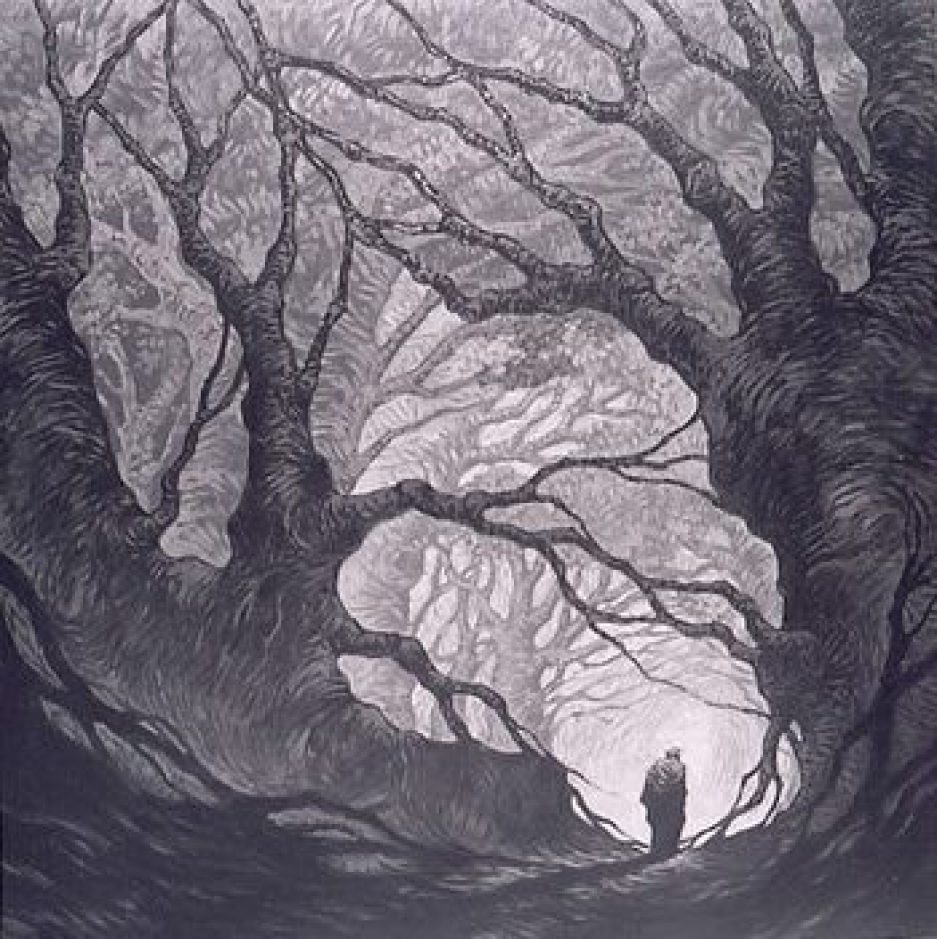My "theology" (my "spirituality") in a nutshell.

This brief description that follows I found buried in a comment I wrote to a reader of my blog The Hesperado back in 2011. Much more could be said (and has been said, but not in any synthetic way, in various remarks and formulations I have written here and there on my blog over the years), as the topic is richly layered and complex in terms of historical and literary dimensions, inflected by an appreciation for the history of philosophy; but as an introductory glimpse, this isn't bad:
֍ ֍ ֍
I'd say I am agnostic, yet also a believer with hope, faith and love -- and that this is, in fact, the perennial core of the Western way, obscured by writings and traditions that have tended to feel the need to over-emphasize the dogmatic aspect in order, as philosopher Eric Voegelin (1901-1985) put it, to protect the core truth.
The problem happens when the protective covering over time becomes hardened or in Voegelin's terms "hypostatized" and the outer shell becomes a substitute for the transcendent (and therefore inescapably elusive) center which is the reality being protected. But Voegelin did not merely see himself as restoring the transcendent content obscured by "dogma" -- he also saw, from the other end so to speak, another major problem to modernity: the skeptical denial of dogma by the anti-dogmatists. Ironically, then, the anti-dogmatists seem to agree with the dogmatists -- that it is the shell which must be fixated upon, and the elusive center is ignored or denied. One side defends the shell; the other side rejects it. Meanwhile, both have lost sight of the center, the content, which is supposed to be behind, or beneath, or between the lines of, the dogma. On the surface, the skeptics have had good reason to reject dogma, Voegelin says; while the dogmatists, on the other hand, were really protecting something worth protecting -- which, alas, has become obscured by both sides of this modern dispute. The anti-dogmatists, thus, have "thrown out the baby with the bathwater" -- since they found no "baby" anyway (or were ill-equipped to "see" the "baby" that was there all along).
A few moderns Voegelin approved of, as showing signs of groping in the right direction to restore the classic experience of reason -- e.g., Gustave Flaubert, Henri Bergson, Thomas Mann, Albert Camus, and T.S. Eliot; among a few others.
A clear and well-written introduction to Voegelin's thought is the biography by Eugene Webb, Eric Voegelin: Philosopher of History -- particularly the introduction, which lays out the essentials. Meanwhile, this brief excerpt from Voegelin himself speaks appositely to the point of my brief essay here.
Aside from Voegelin, many other works over the years have influenced and informed my spiritual pedagogy, so to speak; among which Le dualisme chez Platon, les gnostiques et les manichéens ("Dualism in Plato, the Gnostics and the Manicheans") by Simone Pétrement, and Greek Myths and Christian Mystery, by Catholic theologian Hugo Rahner, occupy a special place in my heart's journey through this life's selva oscura.
0 Comments:
Post a Comment
<< Home